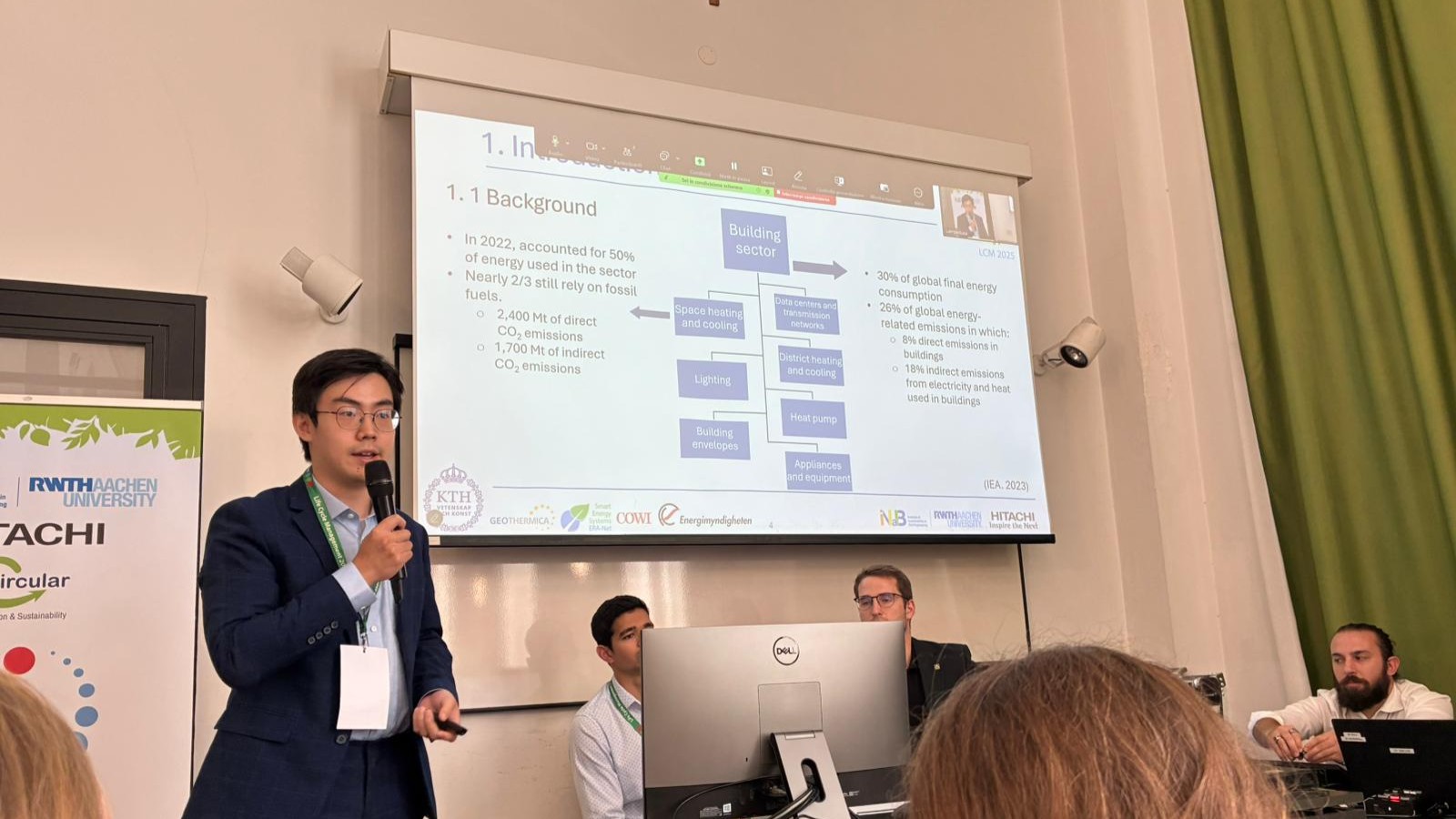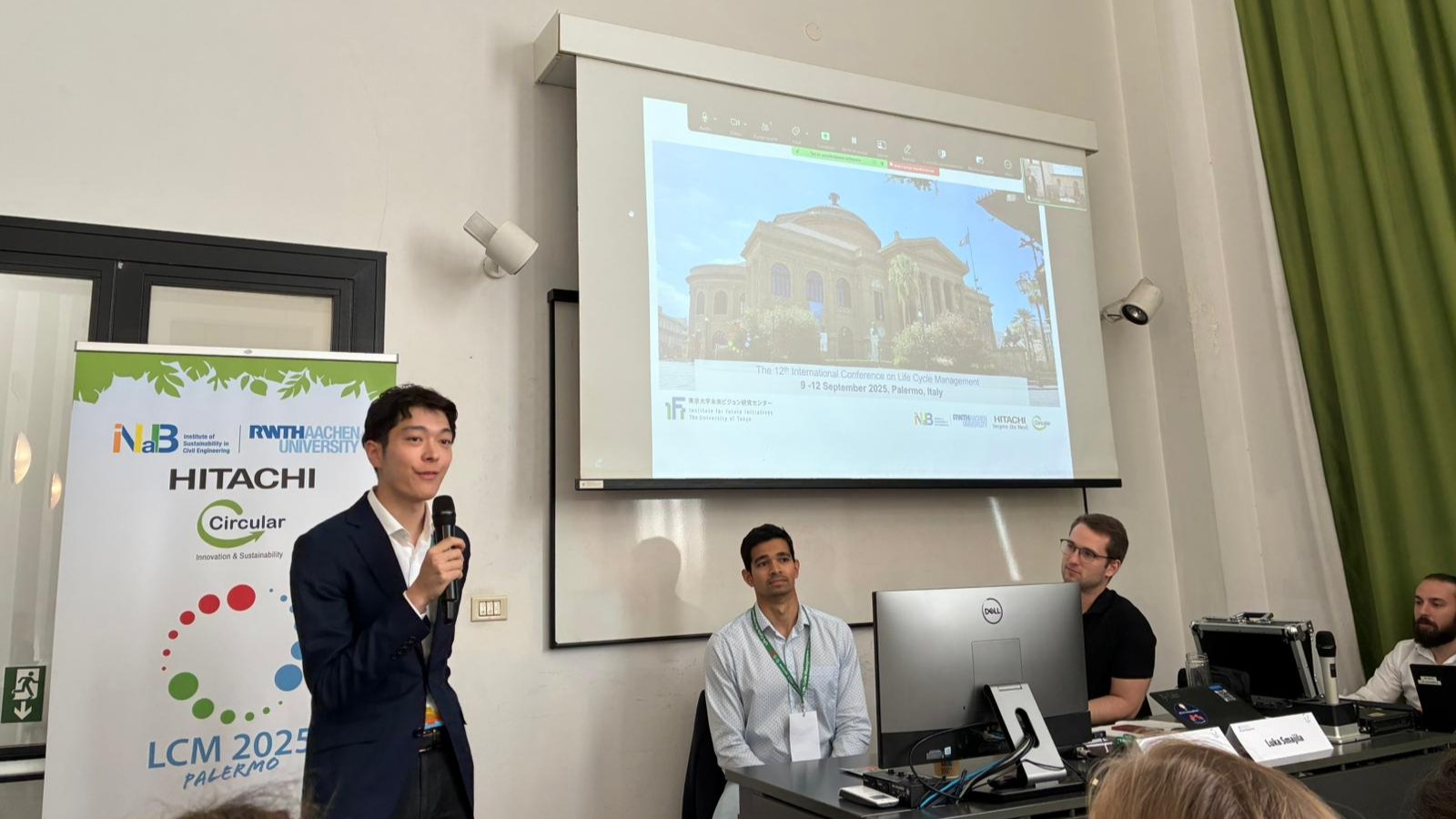EGI at LCM 2025 in Palermo: Sharing Research on Thermal Energy Storage

The Life Cycle Management (LCM) Conference is one of the world's leading forums for environmental, economic, and social sustainability. This year's edition, LCM 2025 in Palermo, Italy, was organized under the theme “Global to Local”, focusing on methods, tools, and best practices that support an efficient and effective sustainable transition. Our department contributed with several activities and presentations, highlighting the importance of thermal energy storage (TES) in decarbonizing the building sector and beyond.
Thermal energy storage is gaining international recognition as a key technology for decarbonization. At LCM 2025, our researchers showcased new insights on its role in enabling sustainable energy systems.
KTH contributions
Among all sectors, the building sector accounts for nearly 30% of global final energy consumption and 26% of global energy-related emissions, with space heating and cooling representing about half of that demand ( IEA, 2023 ). Nearly two-thirds of this demand is still met with fossil fuels. TES is identified as an important pathway to reduce this footprint.
As part of the HECTAPUS project , researchers at KTH carried out a life-cycle assessment of thermal energy storage in buildings. The study, conducted by Haoyang Dong, Maryna Henrysson, Luka Smajila, Saman Nimali Gunasekara, and Justin Ningwei Chiu, evaluated ground source heat pump systems with latent heat TES. Using an office building in Norway as a case study, the team compared PCM-TES, water-TES, and borehole-TES over a 25-year lifetime. Results showed that TES integration yields the lowest life cycle impact in categories such as global warming potential, surplus ore potential, marine eutrophication, and water consumption compared with non-TES references during the operational phase. The study also highlighted that the largest share of global warming potential comes from the production, installation, and end-of-life phases of TES systems.

Collaboration with Japan
The conference also featured contributions from universities and industry in Japan, led by Associate Professor Shoma Fujii from the University of Tokyo (previous visiting scholar at HPT and guest lecturer for MJ2386 Energy Storage Technology ). The Japanese team presented a series of studies including:
-
Case studies on lifecycle design and technological research integration in TES.
-
Comparative analysis of batteries, hydrogen, and TES via energy flow simulations.
-
Lifecycle management demonstrations using TES with adsorbents for low-temperature waste heat recovery.
-
A case on TES for the Japanese beet sugar industry, showcasing its role in harnessing variable renewable energy.
-
Approaches for resource circulation and circular economy awareness, applying superstructure-based lifecycle management.

Organizing sessions on energy LCA
Together with former Northvolt colleagues from the LCA-SESS project , Luka Smajila and Haoyang Dong organized a session to attract abstracts and foster discussion on how life-cycle assessment (LCA) can support industrial development, research, and energy decision-making. The session successfully gathered works featuring updated inventories for energy-generating technologies, new software tools for grid analysis, and approaches to help infrastructure prepare for future demands.

By contributing to LCM 2025, our department not only showcased cutting-edge research but also reinforced international collaboration, bridging Europe and Japan in the field of thermal energy storage. These exchanges highlight our commitment to advancing sustainable energy solutions through life-cycle thinking and practical research dissemination.
👉 If you'd like to know more about our contributions or potential collaborations, don't hesitate to reach out to the team!
